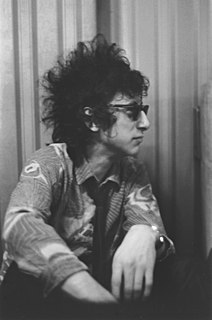A Quote by William Zinsser
Every successful piece of nonfiction should leave the reader with one provocative thought that he or she didn't have before. Not two thoughts, or five - just one. So decide what single point you want to leave in the reader's mind.
Related Quotes
This may be a little bit of a provocative thing to say, but the memoirist doesn't owe the reader anything other than a good story and the inclining of the mind in the direction of memory. Of course, the memoirist is not allowed to make things up. But the really skilled memoirist knows what to leave in and what to leave out to serve the story. In autobiography you can't do that.
In my couple of books, including Going Clear, the book about Scientology, I thought it seemed appropriate at the end of the book to help the reader frame things. Because we've gone through the history, and there's likely conflictual feelings in the reader's mind. The reader may not agree with me, but I don't try to influence the reader's judgment. I know everybody who picks this book up already has a decided opinion. But my goal is to open the reader's mind a little bit to alternative narratives.
The book is finished by the reader. A good novel should invite the reader in and let the reader participate in the creative experience and bring their own life experiences to it, interpret with their own individual life experiences. Every reader gets something different from a book and every reader, in a sense, completes it in a different way.
If only you’d remember before ever you sit down to write that you’ve been a reader long before you were ever a writer. You simply fix that fact in your mind, then sit very still and ask yourself, as a reader, what piece of writing in all the world Buddy Glass would most want to read if he had his heart’s choice. The next step is terrible, but so simple I can hardly believe it as I write it. You just sit down shamelessly and write the thing yourself. I won’t even underline that. It’s too important to be underlined.






































